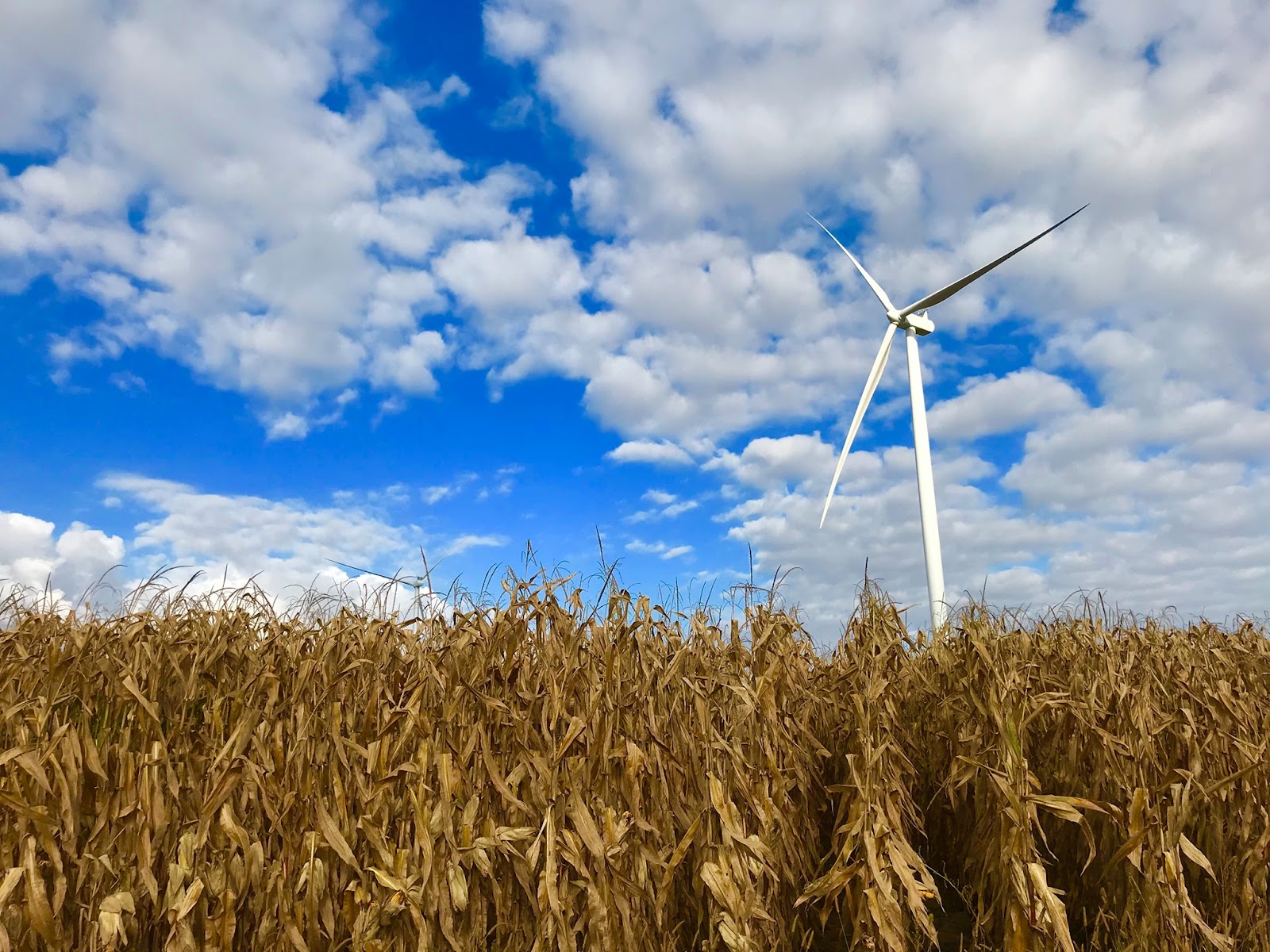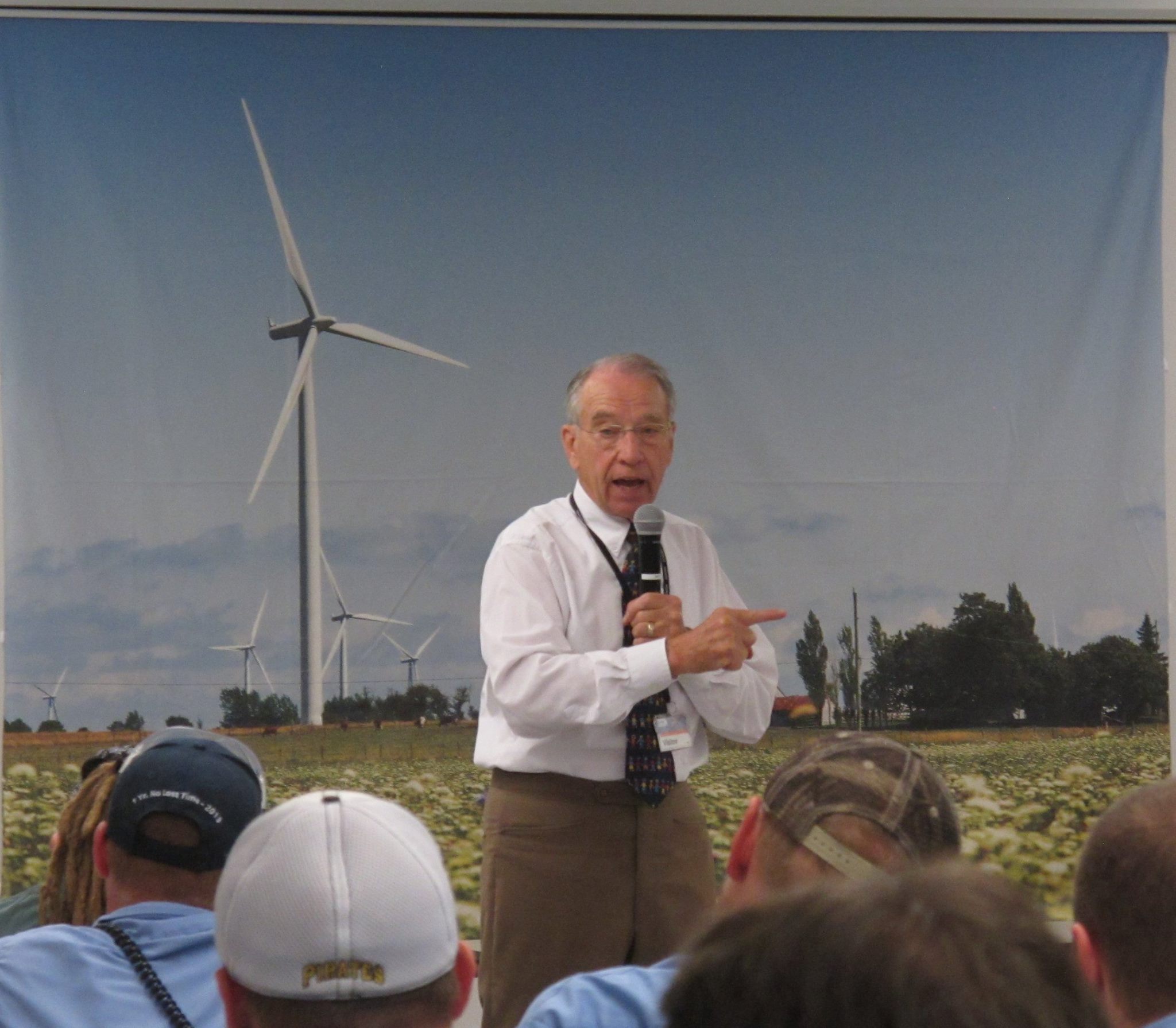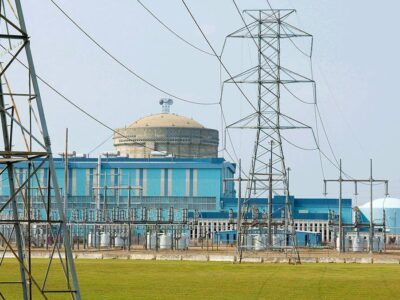Senator Chuck Grassley (R-IA) has long advocated for wind power. He is called the “father” of the Wind Energy Incentives Act, which he penned in 1993. That legislation introduced the country’s first wind energy production tax credit. As he wrote in an op-ed published in the Des Moines Register last year, “The law helped catalyze Iowa’s leadership in renewable energy development. There wasn’t a single wind turbine in Iowa until after my wind energy tax credit.” Since then, he wrote in a 2021 Medium post, “Iowa’s low-cost, dependable, and renewable energy grid has attracted companies like Google, Facebook, Microsoft, and others to invest heavily in the facilities in our state to meet their clean energy commitments.”
Wind has become an essential piece of Iowa’s energy mix. In 2020, wind became Iowa’s leading energy source, generating over 40% of the state’s electricity. Sen. Grassley highlighted the development, “The proof is in the pudding. . . Wind is a critical part of our nation’s all-of-the-above energy strategy. It creates thousands of jobs, supports economic development, boosts tax receipts, attracts investment in our state and puts extra money in farmers’ pockets. It delivers affordable energy for consumers that’s also safe for the environment and helps build American energy independence.” By 2022, Iowa became the first state to generate more than 57% of its electricity from wind and now sits at nearly 60%, according to the U.S. Energy Information Administration.
According to the Iowa Environmental Council, the state’s wind industry employed nearly 4,000 Iowans in 2021, and the National Renewable Energy Laboratory estimates that could increase to more than 7,000 by 2030. Additionally, the industry contributed $60.5 million in tax revenue for the state in 2022, and annually results in lease payments of over $72 million. Sen. Grassley reflected in his Des Moines Register op-ed, “As a lifelong family farmer, I know firsthand how harsh winters and extreme heat, which have been exacerbated by recent drought conditions, can dramatically affect agricultural operations. Land lease payments offer family farmers some peace of mind and are hedges against financial shocks.”
Sen. Grassley argued that wind is not only essential for energy production, but also national security: “Strengthening U.S. energy security requires an ‘all-of-the-above’ commitment to renewable, alternative and traditional sources of energy. Affordable, dependable energy is vital to U.S. economic, food and national security. Clean, sustainable energy is important to protect our natural resources for generations to come. America needs all of the above, not either/or.”

Photo Courtesy MidAmerican Energy
In the face of recent federal opposition to the wind industry, Sen. Grassley has continued to voice his support for the industry that is so vital for his state. In response to President Trump’s comments about the danger the industry poses to wildlife he responded, “I like to tell him, when he talks about wind energy killing birds, there are more birds that fly into the glass towers in Washington, D.C., including his, that kill more birds than wind energy does.”
Meanwhile, as concern escalates about a rollback of clean energy tax credits, Sen. Grassley remembers negotiating a gradual phaseout of the wind credit in 2016 and 2017, noting that “it would have been very harmful to do away with it. So I negotiated a five-year phaseout, which would have ended in 2021.” However, the following administration extended the credit.
Sen. Grassley argued that the fate of the credit is now in the hands of Congress. “The president isn’t going to have any say in what we do to wind energy because it’s going to be part of the bill that extends the 2017 Trump tax cuts. He’s not a member of Congress, and he doesn’t have a vote on that,” he stated.
In last year’s op-ed, Sen. Grassley emphasized Iowa’s dominance in the wind industry, “If the past 30-plus years are any indication, Iowa will continue to be a pioneer in energy production and take current capabilities to the next level. The federal government’s role will be to help pave pathways for the innovators on the ground, then get out of the way.”





